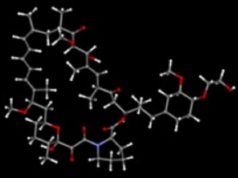Cardiovascular Systems (CSI) has released one-year results from its Coronary Orbital Atherectomy System Study (COAST) in a late-breaking presentation at the 2017 Cardiovascular Research Technologies (CRT) conference in Washington, DC, USA. The researchers observed 77.8% freedom from major adverse cardiac events (MACE) at one year, following from 85% freedom at 30 days.
The COAST study is CSI’s prospective, single-arm, multi-centre, global investigational device exemption trial to evaluate the safety and efficacy of the company’s next-generation Micro Crown orbital atherectomy technology in treating patients with severely calcified coronary lesions.
COAST follows the pivotal ORBIT II trial of the company’s Diamondback 360 Coronary OAS Classic Crown, which received premarket approval from the US Food and Drug Administration (FDA) in 2013 as a primary treatment for severely calcified coronary arteries when facilitating stent delivery.
CSI completed COAST enrolment of 100 patients, including 74 patients at 12 sites in the USA and 26 patients at five sites in Japan, in July 2015.
Samin K Sharma, Mount Sinai Medical Center, New York City, USA, presented the one-year results including freedom from MACE, as well as target lesion revascularisation at one year after the procedure.
COAST 1-year outcomes as compared to 30-day outcomes:
| 30-day | one-year | |||||
| Freedom from MACE | 85% | 77.8% | ||||
| MI (defined as CK-MB >3x ULN) | 14% | 14% | ||||
| Non Q-wave | 12% | 12% | ||||
| Q-wave | 2% | 2% | ||||
| Target Vessel/Lesion Revascularisation | 1% | 9.4% | ||||
| TLR | 1% | 6.3% | ||||
| Cardiac death | 1% | 1% |
“Incidence of severe coronary arterial calcium is significant and underappreciated,” says Sharma. “These one-year results from the COAST investigational device exemption study resulted in 77.8% freedom from one-year MACE, therefore concluding that the Diamondback 360 Coronary OAS Micro Crown technology may address this unmet treatment need for this difficult to treat population.”










